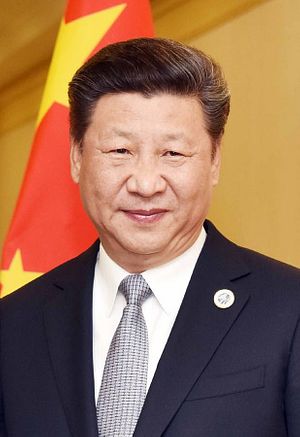This year marks the 40th anniversary of China’s opening to the outside world in 1978. Following the disastrous Cultural Revolution and Mao Zedong’s death in 1976, economic development, not class struggle, became the primary aim of the Chinese Communist Party (CCP). Deng Xiaoping allowed experimentation with market-based alternatives to central planning, and for a while it appeared that economic liberalization would help create a free market in ideas with greater debate on political as well as economic issues. That hope is rapidly disappearing with the rising power of China’s president for life, Xi Jinping.
A new “little red” book, Thirty Chapters about Xi Jinping Thought on Socialism with Chinese Characteristics for a New Era, compiled by the Publicity Department of the CCP’s Central Committee, presents the politically correct view on Chinese-style socialism. The book is being widely distributed within China, but there is little room for serious debate. As the China Daily notes, the book “explains that Xi Jinping Thought is the guiding thought that the Party and the country must follow in the long run.”
Xi Jinping Thought is a 14-point manifesto to ensure CCP “leadership over all forms of work.” It promises “continuation of ‘comprehensive deepening of reforms’”; propagates the long-held myth that under “socialism with Chinese characteristics,” the “people” are “the masters of the country”; asserts that China should be governed by “the rule of law”; reinforces the post-Maoist idea that “the primary goal of development” is to improve “people’s livelihood and well-being”; and advocates creating “a peaceful international environment.”
In March 2018, the National People’s Congress, by a vote of 2,958 to 2 (with 3 abstentions), added “Xi Jinping Thought” to the Preamble of the PRC’s Constitution, alongside “Marxism-Leninism, Mao Zedong Thought, and Deng Xiaoping Theory.” At the same time, the NPC amended Article 1 by adding: “The defining feature of socialism with Chinese characteristics is the leadership of the Communist Party of China.”
If President Xi actually allowed the common people to be “masters of the country,” adopted a genuine rule of law to limit the power of government and safeguard persons and property—including freedom of thought—then he would truly transform China. Yet his actions and growing power do not instill much confidence that the Middle Kingdom will couple economic freedom with limited government and protect basic human rights. Indeed, since Xi took over as paramount leader, economic reform has stalled or even regressed, and suppression of human rights has worsened.
Liu Xiaobo’s dream for “a future free China” looks dim. As a signatory to Charter 08, he was imprisoned and not allowed to receive the 2010 Nobel Peace Prize in person, and his wife, Liu Xia, was put under house arrest for eight years. The empty seat at the Nobel ceremony was a stark reminder that although China is the largest trading nation in the world, it ranks near the bottom in terms of a free market for ideas.
Without open debate and competition in a free market for ideas, the probability of big errors increases dramatically. China learned that lesson under Mao’s central planning and control. That is why Article 45 of the PRC’s 1978 Constitution guaranteed individuals “the right to speak out freely, air their views fully, hold great debates and write big-character posters.”
Those “four big rights” were ended in 1980, and no longer appear in the Constitution. They ended because the CCP has a monopoly of power and to maintain that power the ruling elite must not let liberalization in the market for goods and services spillover to the market for ideas. All individual rights in China are suppressed by the power of the state, as represented by the vanguard of the CCP.
Today, the PRC Constitution declares: “Citizens of the People’s Republic of China enjoy freedom of speech, of the press, of assembly, of association, of procession and of demonstration” (Article 35). It also states that “freedom of the person of citizens . . . is inviolable” (Article 37). Yet the reality is much different.
The CCP’s Constitution continues to hold that “the highest ideal and ultimate goal of the Party” is “the realization of communism.” In truth, the Party’s monopoly on power is maintained through the suppression of a free market in ideas. Any criticism of the CCP is dealt with swiftly with no effective due process and no independent judiciary. In a country without a just rule of law and the free flow of information, there is little trust in government and much fear with regard to one’s security. Those cracks in the institutional infrastructure will put a drag on China’s future development and cause untold misery.
James A. Dorn is a senior fellow and China specialist at the Cato Institute in Washington, D.C.

































